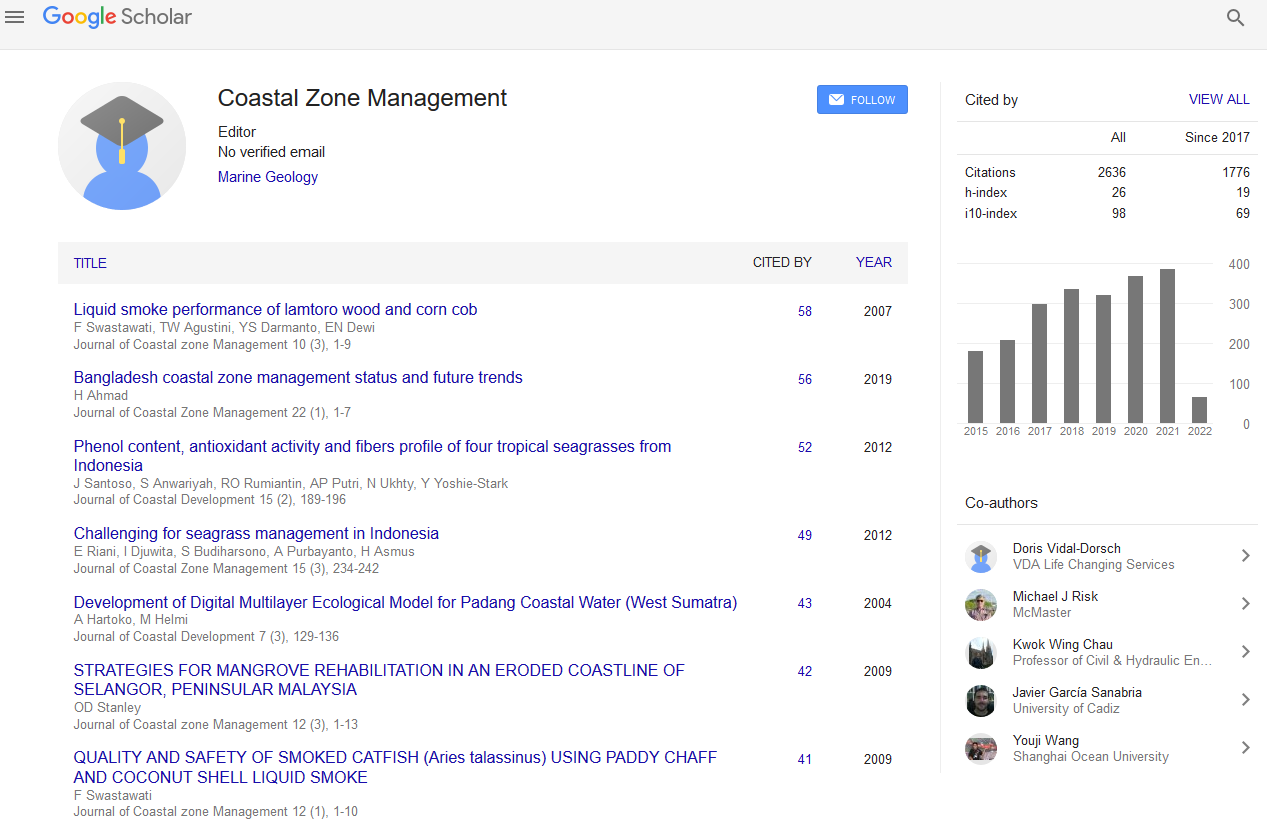Indexed In
- SafetyLit
- RefSeek
- Hamdard University
- EBSCO A-Z
- OCLC- WorldCat
- Publons
Useful Links
Share This Page
Journal Flyer

Open Access Journals
- Agri and Aquaculture
- Biochemistry
- Bioinformatics & Systems Biology
- Business & Management
- Chemistry
- Clinical Sciences
- Engineering
- Food & Nutrition
- General Science
- Genetics & Molecular Biology
- Immunology & Microbiology
- Medical Sciences
- Neuroscience & Psychology
- Nursing & Health Care
- Pharmaceutical Sciences
Abstract
Use of Azolla (Azolla pinnata) Meal as a Substitute for Defatted Soybean Meal in Diets of Juvenile Black Tiger Shrimp (Penaeus monodon)
Agung Sudaryono
A 42-day feeding experiment was conducted to study the feasibility of utilizing azolla (Azolla pinnata) meal (AZM) as a replacement for soybean meal (SBM) in the diets for juvenile Penaeus monodon. The replacement levels of azolla meal protein in the diets were 0, 25, 50, 75, and 100% of the total soybean meal protein. All diets were isonitrogenous at 40% crude protein. Shrimp (mean initial weight, 0.49±0.02 g) were fed three times daily ad libitum at an initial feeding allowance of 10% total body weight per day. A completely randomized design was used in the study and shrimp were stocked at a density of 10 animals/72 L-tank in triplicates. There were not significant differences in weight gains (1.97-2.06 g), specific growth rates (SGR 3.81-3.89%/d), feed conversion ratios (FCR 2.06-2.77), protein efficiency ratios (PER 0.89-1.24), apparent protein utilization (APU, 43.356.7%), and survival rates (99.1-100%) among shrimp groups (P>0.05). Feeding preference tests showed that either soybean meal-based diet or azolla meal-based diet was similarly preferred (P>0.05) by shrimp with the preference values of 51 and 40% for soybean meal-based diet and azolla meal-based diet, respectively. The results of this study suggest that azolla meal protein can replace up to 100% of the soybean meal protein in practical diet for juvenile black tiger shrimp Penaeus monodon under laboratory conditions without any adverse performance. The use of azolla meal as an alternative plant protein source to soybean meal may be able to reduce the feed costs for Penaeus monodon aquaculture.

